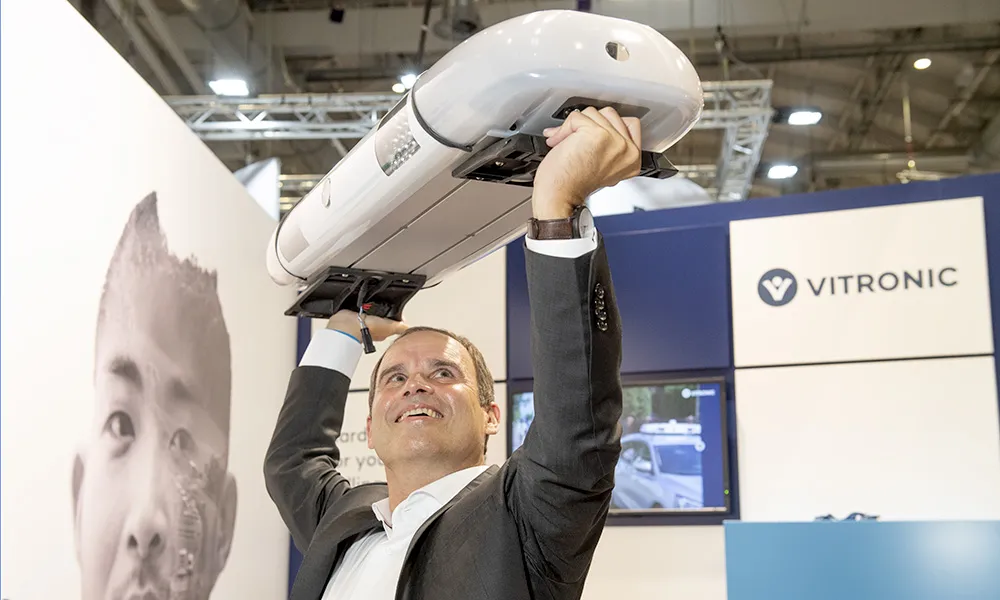
LIDAR pioneer
The housing can be used both for enforcement and tolling applications and is easily towed to any site where deployment of ITS technology is only necessary for a certain time span or has so far been particularly challenging.
A joint development between Vitronic and partner company
In addition, the Vitronic booth will also showcase TollChecker and the PoliScan FM1. TollChecker is a flexible tolling platform for getting information on vehicles from the roadside to the back office. The state-of-the-art platform allows customised solutions for high-performance identification of vehicles and the tracking of their journey throughout a tolling network. PoliScan FM1 is a next-generation LIDAR enforcement system that offers authorities maximum flexibility when enforcing against dangerous driving behaviour.









